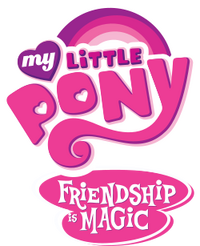Previously I took an all-too-brief look at how Aristotle handled
friendship (which I might expand upon later). As an interesting comparison (and
to continue the focus on virtue ethics), I thought I’d start looking at the
first three episodes of the animated series My Little Pony: Friendship is Magic in order to see how much of an influence
the Philosopher might or might not had on producer Lauren Faust’s views on the
virtue of friendship. [Yes, I probably am the only Aristotelian-Thomist brony
in existence.]
Random
Thoughts on Why I’m a Brony
 |
| Aristotle's virtue ethics, updated for the 21st century |
I’ll leave the friendship theme, review and commentary of
episodes 1 and 2 for the next post, but I do have a few things to say regarding
the series as a whole. Producer Lauren Faust, who previously worked on Foster’s
Home for Imaginary Friends and The Powerpuff Girls, has created a children’s
animated show transcending the limitations of “girl’s shows” and Hasbro product
placements. This isn’t Saturday morning trash. MLP: FiM is worthwhile even to
viewers not in the target range, featuring likable, relatable characters,
entertaining plots and action, humor for both kids and adults, and a promotion
of a kind of virtue ethical approach to friendship (albeit of the simplified Hallmark
variety). Faust’s influence really makes the difference between this generation
of MLP and previous MLP shows (which you can catch on YouTube, if you
dare). Did I mention the stylized
animation of MLP: FiM goes a long way in making this a show that will not give
you a headache from excessive sweetness?
In my case, the main characters, flawed yet ever willing to
get along, and the friendship moral drew me into the show (I should also
mention the goofily endearing character of Derpy). Given my philosophical cast
of mind, I began to wonder if I could hammer out a “My Little Pony Virtue Ethics”
with an emphasis on friendship (just like “Care Bear Virtue Ethics”). But that
attempt will have to wait for another post.
Friendship is
Magic: Part 1 (Character and Plot Overview)
The first episode of MLP:
FiM introduces us to our main protagonist, a purple unicorn named Twilight Sparkle, a bookworm of the highest order. She apparently devotes most of her
time to reading books on magic and close to zilch to social interaction. I can
definitely relate to this character. Luckily, for the extroverted among us, the
ruler of the pony kingdom of Equestria, Princess Celestia, points out that “there
is more to a young pony's life than studying” and commands her personal pupil Twilight to move
from Canterlot Castle to Ponyville’s Library. Now, moving to a library to find
out about the world beyond books might seem counter-intuitive, but Twilight does
receive the task to make some friends, much to her chagrin.
Reluctantly inspecting the town, Twilight quickly comes
across five ponies with highly distinctive quirks (hint, they’re crazy!), as
Ponyville is a very welcoming place. The pink pony Pinkie Pie is random, energetic,
and likes to party. The country pony Applejack has a big family and likes
working hard harvesting apples. The blue pegasus Rainbow Dash is a bit of a
slacker and likes honing her flying technique instead of working. The glamorous
unicorn Rarity is prim and proper and likes making dresses. The bashful pegasus
Fluttershy is found in the episode if only the viewer will listen closely (psst!
she likes animals).
 |
| The Mane Six |
All five want to be friends, but the dour Twilight isn’t in the
best of moods, she just wants to get back to the library and study. Her mind is
obsessed with tales of a dark princess come back to raise havoc and of magic
objects called “elements of harmony” with the power to cast out evil. Can these
stories be true? Finding the time to read
further, however, is not an easy task, as Ponyville always has something to
celebrate, with Pinkie Pie seemingly masterminding every party. Twilight quickly
finds herself distracted by a surprise welcome party at her library house and then
a summer sun festival at Canterlot Castle.
The partying (as well as the episode) ends with the return
of Nightmare Moon, the evil alter ego of Princess Luna, sister of Celestia and
co-ruler of Equestria. After a thousand-year banishment on the moon, the evil princess intends
to gain her revenge by supplanting her sister (strangely absent) and covering
the world in complete darkness (a perpetual nighttime).
To be continued…
[Next post: Friendship is Magic: Part 2, Plot, Review, Commentary and
Theme]


No comments:
Post a Comment